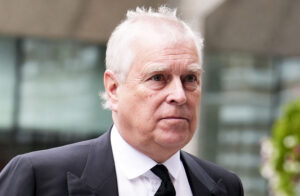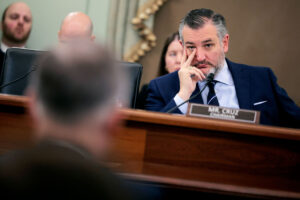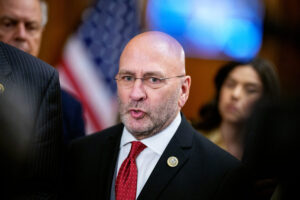The Dictatorship
4 Republicans back Senate resolution to undo Trump’s tariffs

WASHINGTON (AP) — The Senate passed a resolution Thursday that would undo many of President Donald Trump’s tariffs around the globe, the latest note of displeasure at his trade tactics in Washington that came just as the president celebrated his negotiations with China as a success.
After a meeting with Chinese leader Xi Jinping in South Korea, Trump said he would cut tariffs on the Asian economic giant and China would, in turn, purchase 25 million metric tons of U.S. soybeans annually for the next three years. The Republican president claimed his trade negotiations would secure “prosperity and security to millions of Americans.”
But back in Washington, senators — several from Trump’s Republican Party — have demonstrated their dissent with Trump’s tariff tactics by passing a series of resolutions this week that would nullify the national emergencies that Trump has declared to justify the import taxes. Already this week, the Senate approved resolutions to end tariffs imposed on Brazil and Canada. While the legislative efforts are ultimately doomed, they exposed fault lines in the GOP.
The latest resolution, which would effectively end most of Trump’s tariff policies, passed on a 51-47 vote, with four Republicans joining with all Democrats.
Sen. Rand Paul, a Kentucky Republican who backed Democrats on the resolutions, credited Trump for decreasing the tariffs on China, but said the result is “still much higher than we’ve had.”
Stay up to date with the news and the best of AP by following our WhatsApp channel.
“It still will lead to increased prices,” he said.
The votes were orchestrated by Democrats using a decades-old law that allows Congress to nullify a presidential emergency. But House Republicans have instituted a new rule that allows the leadership to prevent such resolutions from coming up for a vote. Plus, Trump would surely veto legislation that inhibits his power over trade policy, meaning the legislation won’t ultimately take effect.
Democrats can force a vote but not a result
But Democrats have still been able to force the Senate to take up an uncomfortable topic for their Republican colleagues.
“American families are being squeezed by prices going up and up and up,” said Sen. Ron Wyden, an Oregon Democrat, in a floor speech. He added that “in many ways, red states in rural areas are being hit the hardest,” and pointed to economic strain being put on farmers and manufacturers.
Senate Democratic leader Chuck Schumer said that Americans shouldn’t be fooled by Trump’s announcement.
“Donald Trump has folded, leaving American families and farmers and small businesses to deal with the wreckage from his blunders, from his erratic on again off again tariff policies,” said the New York Democrat.
How Republicans see Trump’s trade policy
Overall, there has been little movement among Republicans to oppose Trump’s import taxes publicly. A nearly identical resolution failed in April on a tied vote after Republican Sen. Mitch McConnell of Kentucky was absent. On Thursday, McConnell and Paul, as well as Sens. Lisa Murkowski of Alaska and Susan Collins of Maine, voted along with all Democrats to pass the resolution.
Those four Republicans helped advance similar resolutions this week to end the tariffs on Brazil and Canada. Sen. Thom Tillis, a North Carolina Republican, also voted in favor of the resolution applying to Brazilbut otherwise, GOP senators have held the line this week behind the president.
“I agree with my colleagues that tariffs should be more targeted to avoid harm to Americans,” said Sen. Mike Crapo, chair of the Senate Finance Committee, in a floor speech. Yet, he added that Trump’s negotiations “are bearing fruit” and praised his announcement that Beijing would allow the export of rare earth elements and start buying American soybeans again.
Republicans representing farm states were especially enthused by the announcement that China would be purchasing 25 million metric tons of soybeans annually, starting with 10 million metric tons for the rest of this year.
Sen. Roger Marshall, a Kansas Republican, said the deal with China “absolutely” justifies Trump’s use of tariff threats to negotiate trade policy with other nations. He called the announcement “huge news” for Kansas farmers, but also acknowledged that they would still probably need financial help as they deal with the strain of losing their biggest customer for soybeans and sorghum.
“It’s not like you can snap your finger and send over $15 billion worth of sorghum and soybeans together overnight,” he said.
China had been the largest purchaser of U.S. soybeans until this year. It purchased almost 27 million metric tons in 2024so Trump’s negotiated deal only guarantees to return soybean exports to China to less than their previous level.
Sen. Kevin Cramer, a North Dakota Republican, called the purchase agreement a “start.”
Asked whether he agreed with Trump’s assessment that his meeting with Xi had been a runaway success, Cramer smiled and said the president “is nothing if not optimistic.”
The Dictatorship
Judges could rule on the fate of SNAP food aid as deadline nears for shutdown to end payments
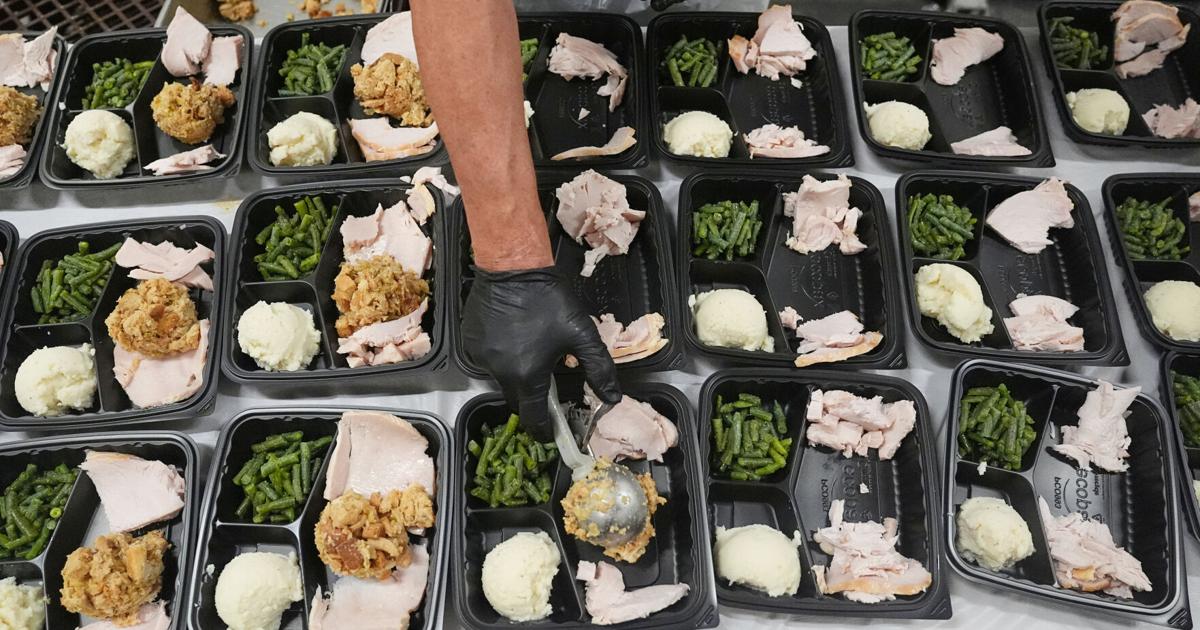
BOSTON (AP) — Two federal judges ruled nearly simultaneously on Friday that President Donald Trump’s administration must continue to pay for SNAP, the nation’s biggest food aid program, using emergency reserve funds during the government shutdown.
The judges in Massachusetts and Rhode Island gave the administration leeway on whether to fund the program partially or in full for November. That also brings uncertainty about how things will unfold and will delay payments for many beneficiaries whose cards would normally be recharged early in the month.
The U.S. Department of Agriculture planned to freeze payments to the Supplemental Nutrition Assistance Program starting Nov. 1 because it said it could no longer keep funding it due to the shutdown. The program serves about 1 in 8 Americans and is a major piece of the nation’s social safety net. It costs about $8 billion per month nationally.
U.S. Sen. Amy Klobuchar, a Minnesota Democrat and the ranking member of the Senate Agriculture committee that oversees the food aid program, said Friday’s rulings from judges nominated to the bench by former President Barack Obama confirm what Democrats have been saying: “The administration is choosing not to feed Americans in need, despite knowing that it is legally required to do so.”
Trump posted on social media Friday blasting congressional Democrats for the shutdown and suggesting the government would comply with the rulings but also that it needed more clarity first: “If we are given the appropriate legal direction by the Court, it will BE MY HONOR to provide the funding.”
Judges agree at least one fund must go toward SNAP
Democratic state attorneys general or governors from 25 states and the District of Columbia challenged the plan to pause the program, contending that the administration has a legal obligation to keep it running in their jurisdictions.
The administration said it wasn’t allowed to use a contingency fund of about $5 billion for the program, which reversed a USDA plan from before the shutdown that said money would be tapped to keep SNAP running. The Democratic officials said not only could that money be used, but that it must be. They also said a separate fund with around $23 billion is available for the cause.
In Providence, Rhode Island, U.S. District Judge John J. McConnell ruled from the bench in a case filed by cities and nonprofits that the program must be funded using at least the contingency funds. He asked for an update on progress by Monday.
Along with ordering the federal government to use emergency reserves to backfill SNAP benefits, McConnell ruled that all previous work requirement waivers must continue to be honored. The USDA during the shutdown has terminated existing waivers that exempted work requirements for older adults, veterans and others.
There were similar elements in the Boston case, where U.S. District Judge Indira Talwani ruled in a written opinion that the USDA has to pay for SNAP, calling the suspension “unlawful.” She ordered the federal government to advise the court by Monday as to whether they will use the emergency reserve funds to provide reduced SNAP benefits for November or fully fund the program “using both contingency funds and additional available funds.
“Defendants’ suspension of SNAP payments was based on the erroneous conclusion that the Contingency Funds could not be used to ensure continuation of SNAP payments,” she wrote. “This court has now clarified that Defendants are required to use those Contingency Funds as necessary for the SNAP program.”
For many, benefits will still be delayed after the ruling
No matter how the rulings came down, the benefits for millions of people will be delayed in November because the process of loading cards can take a week or more in many states.
The administration did not immediately say whether it would appeal the rulings.
States, food banks and SNAP recipients have been bracing for an abrupt shift in how low-income people can get groceries. Advocates and beneficiaries say halting the food aid would force people to choose between buying groceries and paying other bills.
Most states have announced more or expedited funding for food banks or novel ways to load at least some benefits onto the SNAP debit cards.
Across the U.S., advocates who had been sounding the alarm for weeks about the pending SNAP benefits cut off let out a small sigh of relief as the rulings came down Friday, while acknowledging the win is temporary and possibly not complete.
“Thousands of nonprofit food banks, pantries and other organizations across the country can avoid the impossible burden that would have resulted if SNAP benefits had been halted,” said Diane Yentel, president and CEO of the National Council of Nonprofits, one of the plaintiffs in the Rhode Island case.
The possibility of reduced benefits also means uncertainty
Cynthia Kirkhart, CEO of Facing Hunger Food Bank in Huntington, West Virginia, said her organization and the pantries it serves in Kentucky, Ohio and West Virginia will keep their extra hours this weekend, knowing that the people whose benefits usually arrive at the start of the month won’t see them.
“What we know, unless the administration is magical, is nothing is going to happen tomorrow,” she said.
Kristle Johnson, a full-time nursing student and mother of three in Florida, is concerned about the possibility of reduced benefits.
Despite buying meat in bulk, careful meal planning and not buying junk food, she said, her $994 a month benefit doesn’t buy a full month’s groceries.
“Now I have to deal with someone who wants to get rid of everything I have to keep my family afloat until I can better myself,” Johnson said of Trump.
The ruling doesn’t resolve partisan tussles
At a Washington news conference earlier Friday, Agriculture Secretary Brooke Rollins, whose department runs SNAP, said the contingency funds in question would not cover the cost of the program for long. Speaking at a press conference with House Speaker Mike Johnson at the Capitol, she blamed Democrats for conducting a “disgusting dereliction of duty” by refusing to end their Senate filibuster as they hold out for an extension of health care funds.
A push this week to continue SNAP funding during the shutdown failed in Congress.
To qualify for SNAP in 2025, a family of four’s net income after certain expenses can’t exceed the federal poverty line, which is about $31,000 per year. Last year, SNAP provided assistance to 41 million people, nearly two-thirds of whom were families with children.
“The court’s ruling protects millions of families, seniors, and veterans from being used as leverage in a political fight and upholds the principle that no one in America should go hungry,” Skye Perryman, president and CEO of Democracy Forward, said of the Rhode Island decision.
___
Mulvihill reported from Haddonfield, New Jersey; and Kruesi from Providence, Rhode Island. Associated Press reporter Lisa Mascaro in Washington, D.C., contributed.
The Dictatorship
Britain’s king stripping brother Andrew of his ‘prince’ title isn’t the end of the story
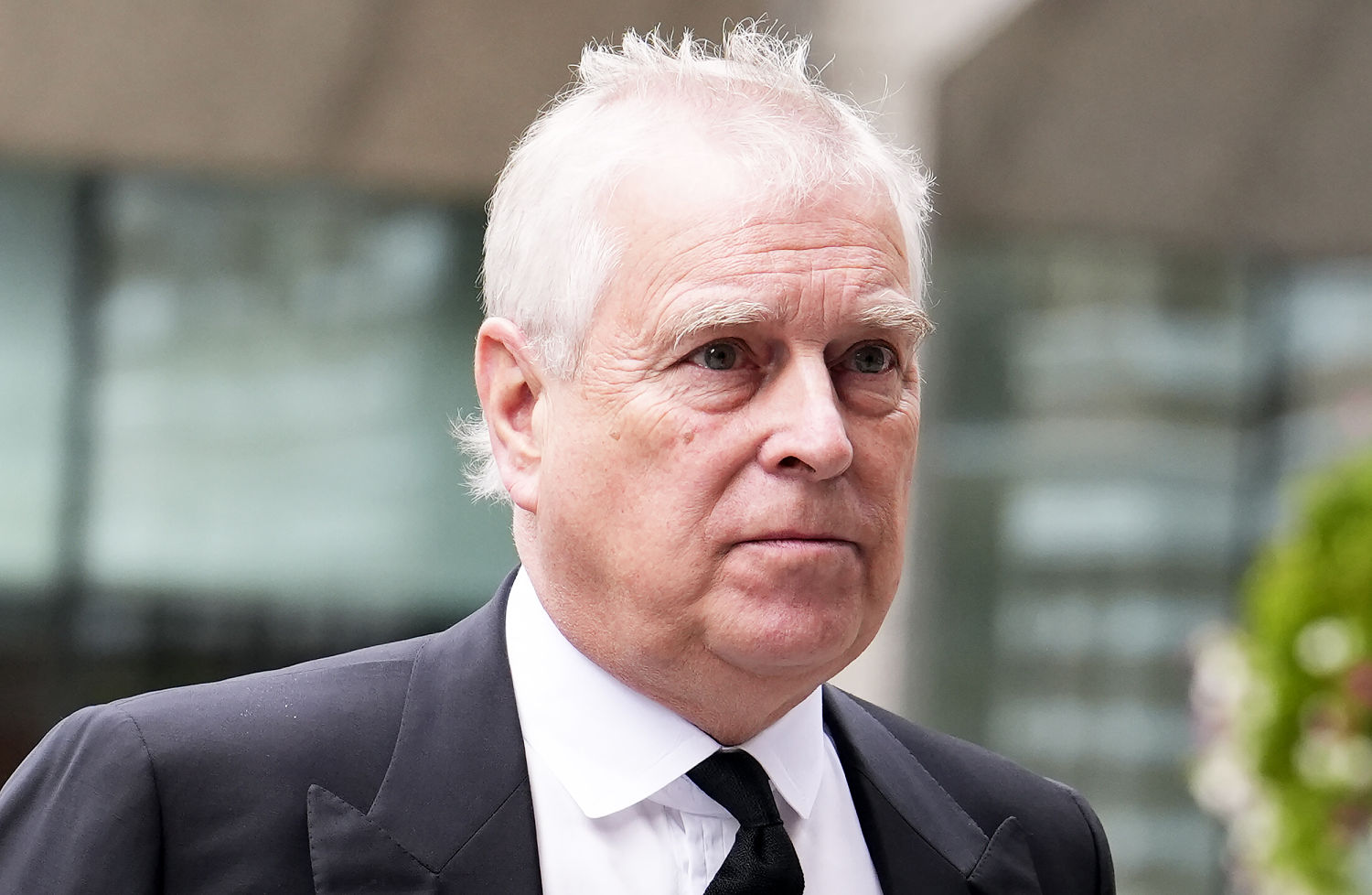
Buckingham Palace would like for us to see power and majesty in its announcement Thursday that King Charles III is stripping his younger brother Andrew of the title of “prince” and booting him from his 30-room residence. After all, no British prince has been officially de-titled in more than a century. None has been so publicly evicted.
But while removing all royal vestiges from Andrew is a momentous step, make no mistake: Charles was backed into a corner. If the monarchy is to survive this saga, the monarch had little choice but to distance the royal family from its most disgraced member — or at least appear to do so. Distinguishing Andrew from the rest of the royal family is Windsor brand management after years of taint by association.
Distinguishing Andrew from the rest of the royal family is Windsor brand management after years of taint by association.
Andrew has been in headlines over his friendship with a convicted sex offender; accusations of sexual assault (which he continues to deny); and links to figures in a government spy case. Allegations of questionable relationships and lavish trips shadowed his years as a British trade envoy. Charles may be used to heckling, but questions shouted at the king this week about what he knew about Andrew and Jeffrey Epstein were replayed over and over on U.K. media — reflecting a national disgust that had sparked talk in Parliament. The king acted partly to ensure lawmakers didn’t.
“These censures are deemed necessary, notwithstanding the fact that he continues to deny the allegations against him,” the palace statement said. “Their Majesties wish to make clear that their thoughts and utmost sympathies have been, and will remain with, the victims and survivors of any and all forms of abuse.”
This language suggests Charles supports women such as Virginia Roberts Giuffre, an American whose allegations that she was trafficked as a teenager by Epstein and forced to have sex with Andrew three times were first published in Britain in 2011. (Andrew has repeatedly denied the accusations. Giuffre settled a lawsuit with Epstein for $500,000 in 2009.)
Giuffre, who died by suicide in April, wrote a memoir that was published posthumously last week. Excerpts from the memoir — which is No. 1 on the Amazon sales chart — intensified media scrutiny on Andrew, who’d been in headlines since the summer publication of the biography “Entitled: The Rise and Fall of the House of York.” Pages were stuffed with anecdotes and mostly anonymous recollections of not just Andrew’s boorish behavior but also his penchant for private flights on the public’s dimeallegations of self-enriching business deals and details of his encounters with Epstein starting in 1999. The biography “hasn’t so much cemented Prince Andrew’s reputation, as put it in concrete boots and thrown it in the river,” the BBC’s royal correspondent wrote in August.
Further blows came from newly surfaced links to Epstein, with the most radioactive reports showing the prince in friendly conversation with Epstein months after he’d claimed to have cut off contact. Andrew’s denials of wrongdoing, previously trusted by royal aides, were compromised — as was the palace practice of letting Andrew manage fallout.
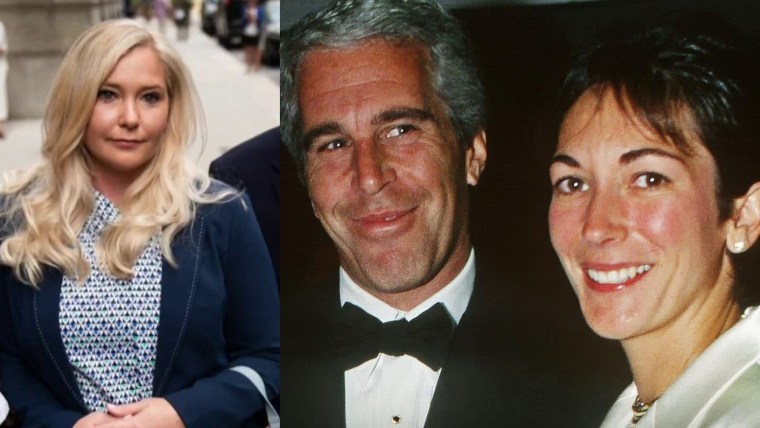
For years after Epstein’s 2008 conviction on a solicitation charge in Floridaquestions were asked about the friendship. Sketchy affiliations were part of the criticism of Andrew’s tenure as U.K. trade ambassador. But it wasn’t until after Epstein died in 2019 — while awaiting trial on federal charges of sex trafficking and conspiracy — that Andrew spoke out. His BBC “Newsnight” interview that November was a debacle of such proportions that it has been dramatized by both Netflix and Amazon. Andrew claimed not to sweat, categorically denied Giuffre’s allegations and expressed no regret over his friendship with Epstein. His tone-deaf statements and failure to apologize were swiftly condemned.
Ever since, Andrew has been trying to draw a line under this scandal. Days after the “Newsnight” interview, he announced he would step back from public life. In early 2022, he returned his military honors and said he would not use his Royal Highness title. Soon after that, he settled a civil lawsuit with Giuffrewith no admission of guilt, for an undisclosed sum. This month, he announced he would not use his Duke of York title. Global humiliations all, and made under intense pressure, but technically the prince had lost none of his privileges.
Things took a turn this month when U.K. news outlets published more emails purportedly between Andrew and Epstein, including messages reportedly showing Andrew had asked his taxpayer-funded police guard to dig up dirt on Giuffre. This prompted a response from London’s Metropolitan Police — it is looking into the reports — but no comment from Andrew or the palace. Details emerged of Andrew’s lease for the 30-room crown-owned mansion he’s rented since 2003.
Turns out nothing sparks outrage like rent of one peppercorn per year.
No one knows what other details about Andrew’s activities could still emerge.
Although Parliament and the monarchy traditionally stay out of each other’s affairs, and control over Andrew’s titles rests with the sovereign, public anger prompted some members of Parliament to question why Andrew should live effectively rent-free in a grand home. For the palace, such discussion is a slippery slope. The monarchy doesn’t want clarity brought to opaque royal financial arrangements, and it’s unlikely people are going to stop asking how, exactly, Andrew affords his lavish lifestyle. No one knows what other details about Andrew’s activities could still emerge.
After the king announced he would strip Andrew of his royal titles, Giuffre’s brother publicly thanked Charles and reflected on his sister’s bravery in speaking out. “This normal girl from a normal family has taken down a prince,” he tearfully told the BBC. That she did not live to see the response to her harrowing story compounds the sadness.
But this is not the end of Andrew’s story. He has been banished — to the Norfolk countryside. Reportedly sometime after Christmashe will move to a property on the Sandringham estate, which is privately owned by the king. His daughters, Princess Beatrice and Princess Eugenie, will retain their titles, while the king will fund his brother.
Now the question is whether there will be a police investigation, potentially clearing Andrew Mountbatten Windsor’s name — or resulting in charges he would have to face without royal protection.
Giuffre’s brother has said Andrew should be behind bars. Others have suggested Andrew could tell authorities what he witnessed at Epstein properties — details that might corroborate accounts from victims. With U.S. lawmakers still focused on Epstein, this issue isn’t closed.
The palace statement says royal sympathies are with the victims of abuse, but if that were the case, the royal family could have acted more firmly years ago. Distancing themselves from Andrew is not the same as calling for accountability.
Autumn Brewington
Autumn Brewington is an opinion editor at BLN Daily. She was previously an opinion editor at The Washington Post, where she oversaw the op-ed page for seven years, and has also edited at The Wall Street Journal and Lawfare. She launched The Post’s royal newsletter and writes about the British royal family on Substack.
The Dictatorship
MAGA infighting erupts over Tucker Carlson’s interview with Nick Fuentes
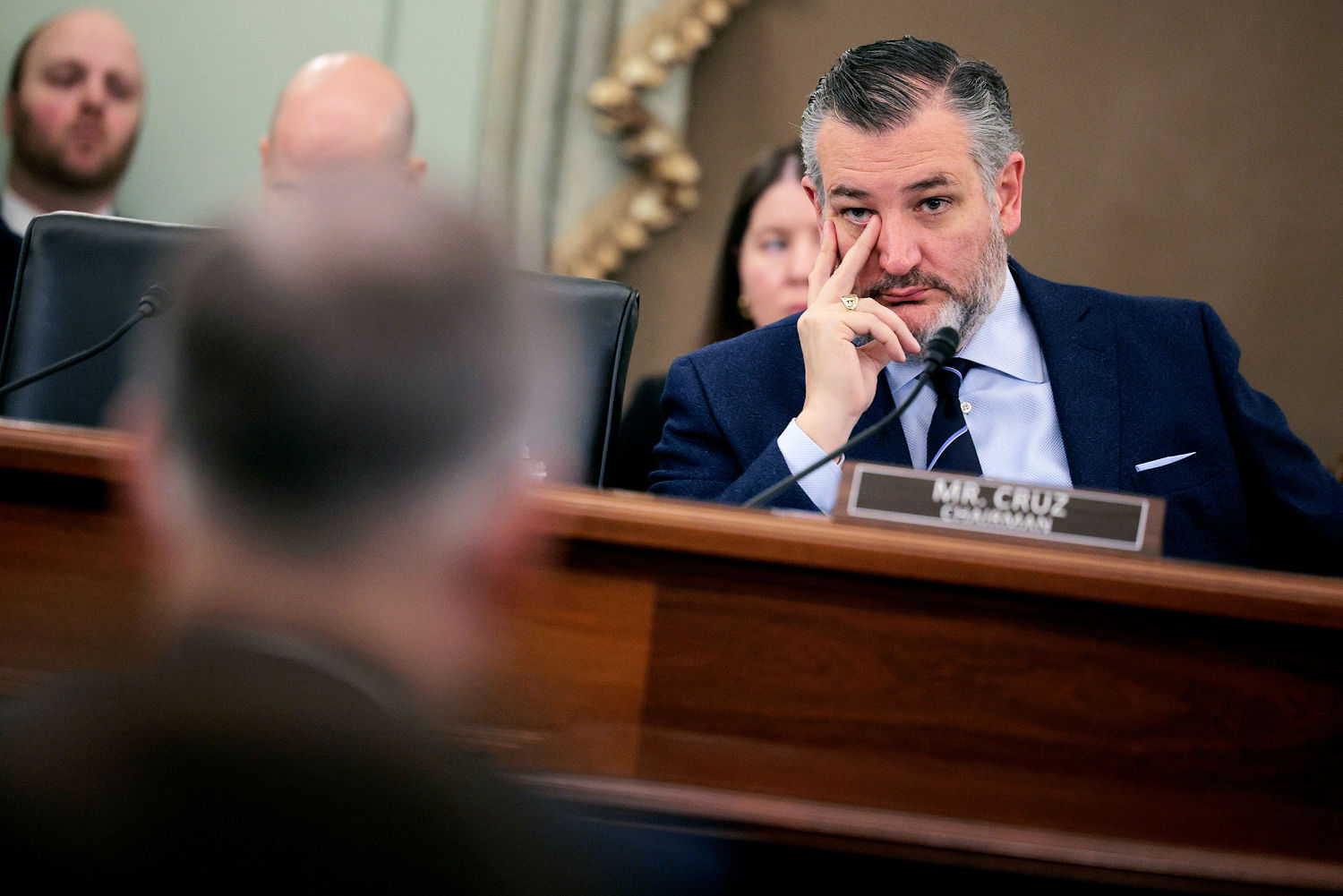
MAGA infighting over issues involving neo-Nazis and Hitler sympathizers has reached such a fever pitch that Sen. Ted Cruz is bemoaning the rise of antisemitism within his party.
In the Texas Republican’s remarks, which mirrored a speech he delivered at a pro-Israel event last week, he said: “Everyone here knows we’re seeing more and more antisemitism rising on the right. In the last six months, I’ve seen more antisemitism on the right than I have in my entire life. This is a poison, and I believe we are facing an existential crisis in our party and in our country.”
Cruz’s own state — where the state GOP chapter has been linked to white supremacists and just last year reversed course on its prior refusal to ban antisemitic people from their party — has offered ample evidence regarding what the senator condemned. But the timing seems to link the remarks to more recent headlines in the national conservative movement.
Cruz’s comments also come in the wake of Tucker Carlson’s friendly chat with Nick Fuentes — a white supremacist who has said he loves Hitler.
That includes two reports from Blue Light News — one detailing messages from a group chat in which Young Republicans leaders expressed support for Hitler and joked about gas chambers, and another that highlighted a Trump administration official who said he has a “Nazi streak.” In recent months, right-wing influencer Candace Owens has stoked antisemitic conspiracy theories alleging that powerful Jews and allies of Israel played a role in the killing of conservative activist Charlie Kirk.
Cruz’s comments also come in the wake of former Fox News host Tucker Carlson’s friendly chat with Nick Fuentes — a white supremacist who has said he loves Hitler — which has ignited a raft of MAGA inflighting.
The clearest example of this came via Sen. Mitch McConnell of Kentucky, who wrote a post on X condemning Kevin Roberts, the president of The Heritage Foundation, after he rebuked the “venomous coalition attacking” Carlson, who Roberts said “always will be a close friend of The Heritage Foundation.” Roberts said the organization is the “intellectual backbone of the conservative movement,” and criticized people for trying to “cancel” Fuentes.
McConnell, it seems, disagrees.
Let’s be honest: The fact that the MAGA movement has an antisemitism problem has seemed obvious since at least 2017, when a bunch of Trump supporters took part in events surrounding the deadly “Unite the Right” rally in Charlottesville, Virginia, where some participants yelled “Jews will not replace us!”
All of this is to say: The Republican Party hasn’t seen members defect en masse when MAGA antisemitism has come under scrutiny in the past. But the past week has made clear that there are deepening fissures in the conservative coalition.
-
Uncategorized12 months ago
Bob Good to step down as Freedom Caucus chair this week
-

 Politics8 months ago
Politics8 months agoFormer ‘Squad’ members launching ‘Bowman and Bush’ YouTube show
-

 The Josh Fourrier Show12 months ago
The Josh Fourrier Show12 months agoDOOMSDAY: Trump won, now what?
-

 The Dictatorship9 months ago
The Dictatorship9 months agoPete Hegseth’s tenure at the Pentagon goes from bad to worse
-

 Politics8 months ago
Politics8 months agoBlue Light News’s Editorial Director Ryan Hutchins speaks at Blue Light News’s 2025 Governors Summit
-

 The Dictatorship9 months ago
The Dictatorship9 months agoLuigi Mangione acknowledges public support in first official statement since arrest
-

 Politics8 months ago
Politics8 months agoFormer Kentucky AG Daniel Cameron launches Senate bid
-

 Politics12 months ago
Politics12 months agoWhat 7 political experts will be watching at Tuesday’s debate






